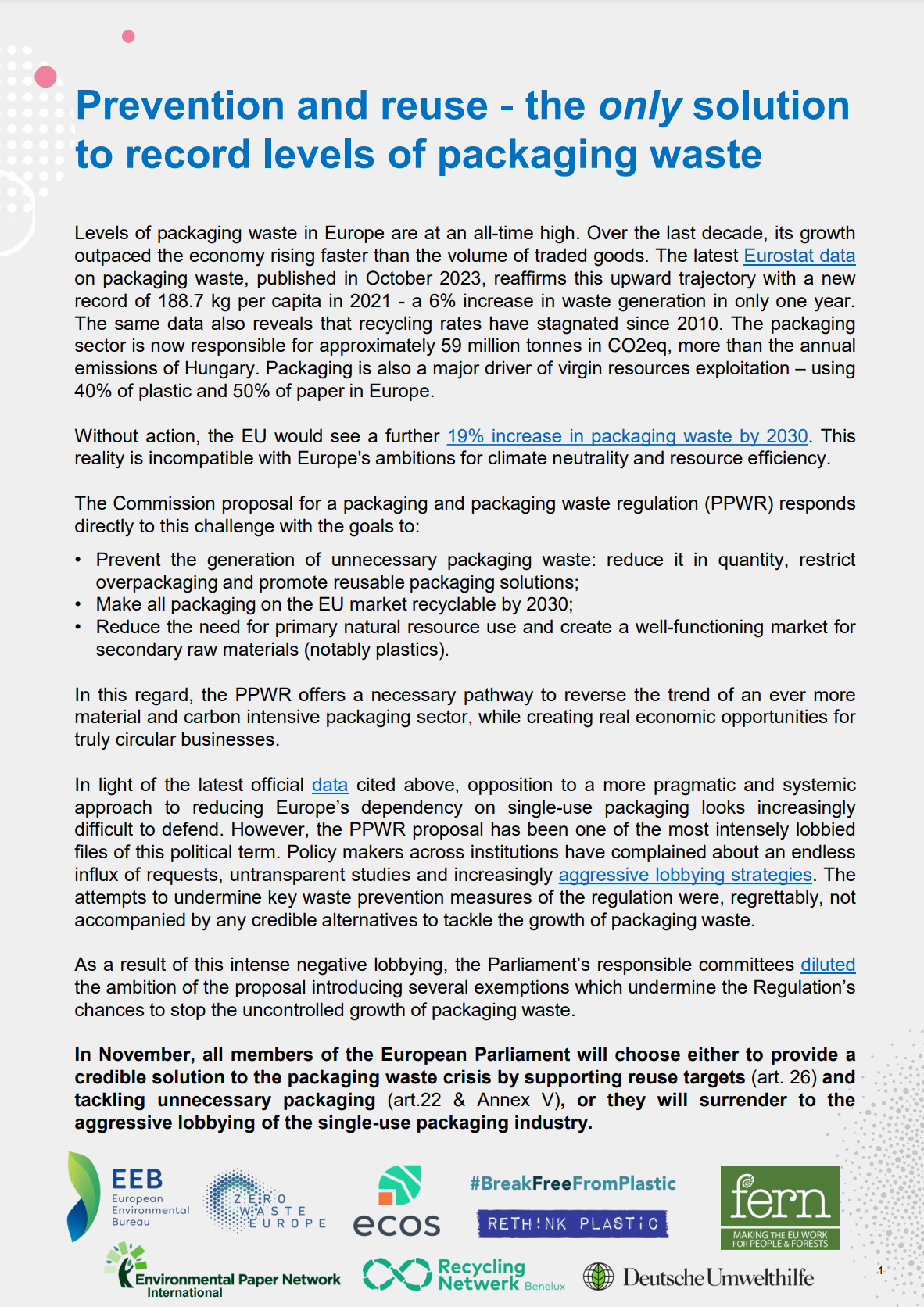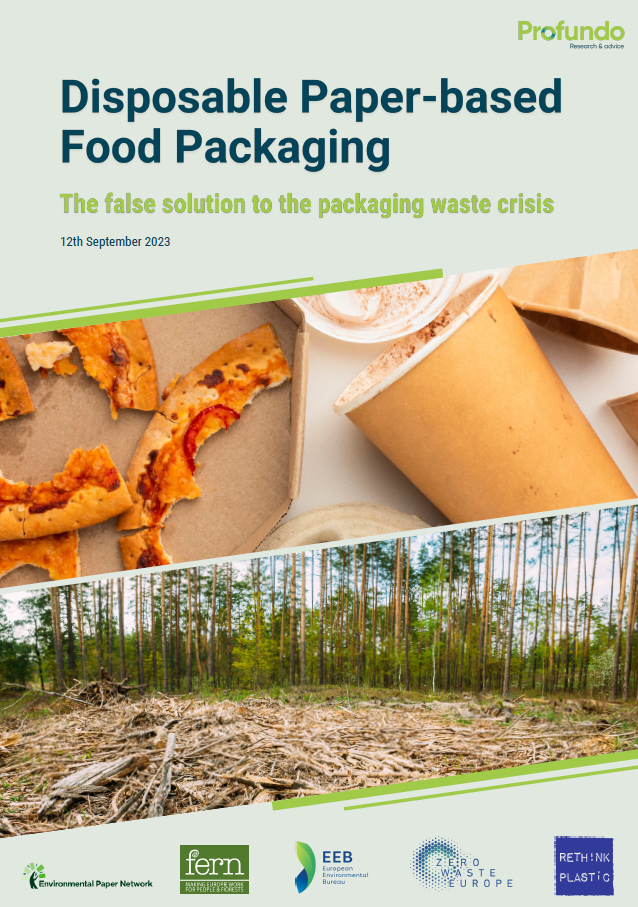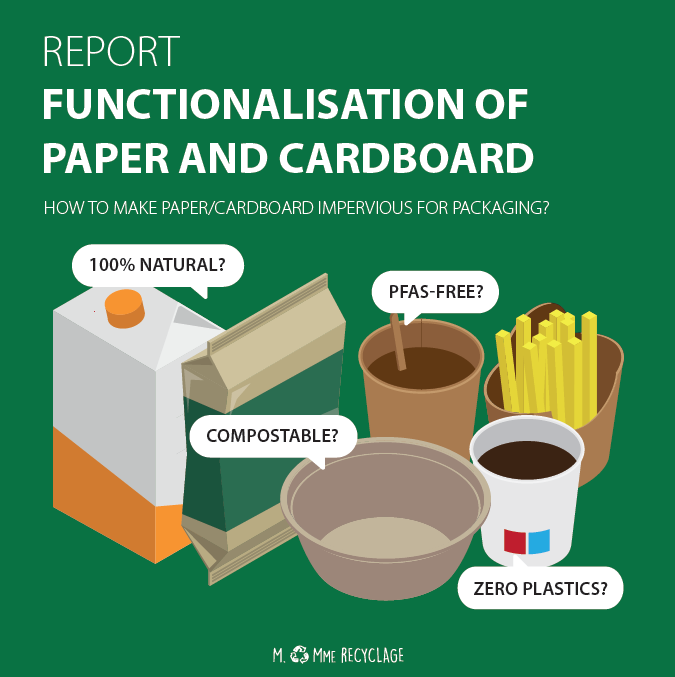
Paper and cardboard require functionalisation so that they can be used in contact with food. Functionalisation may include adding a barrier function to water, grease, gases, etc. This is mainly achieved through the use of plastic, i.e. the combination of polymer(s) + additive(s). Paper and cardboard food packaging are, therefore, not free from plastic. As such, most paper and cardboard packaging remain at the same level as “single-use plastics”, as defined in the European Directive on Single-Use Plastics.
The English version of this report by M. + Mme Recyclage was made possible thanks to the contributions of Ville de Paris, Zero Waste Europe, the Rethink Plastic alliance, and the ReuSe Vanguard Project (RSVP).
Available in English.
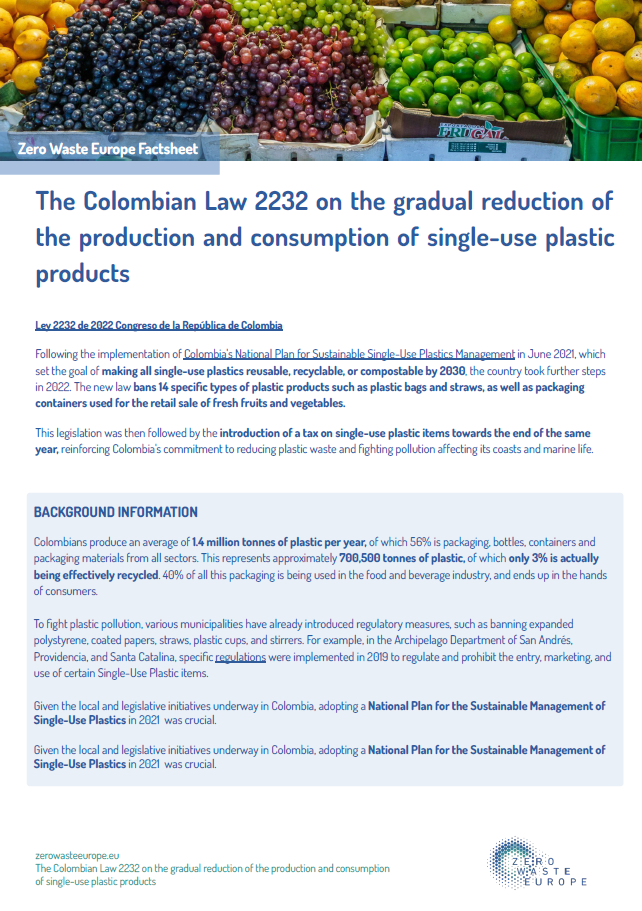
In 2022, Colombia took further steps to strengthen the implementation of its National Plan for Sustainable Single-Use Plastics Management. The country has set the goal of making all single-use plastics reusable, recyclable, or compostable by 2030.
As part of our activities for the 2023 European Week of Waste Reduction, this factsheet analyses Colombia’s Law 2232 on the gradual reduction of the production and consumption of single-use plastic products. The new law bans 14 specific types of plastic products such as plastic bags and straws, as well as packaging containers used for the retail sale of fresh fruits and vegetables.
Available in English.
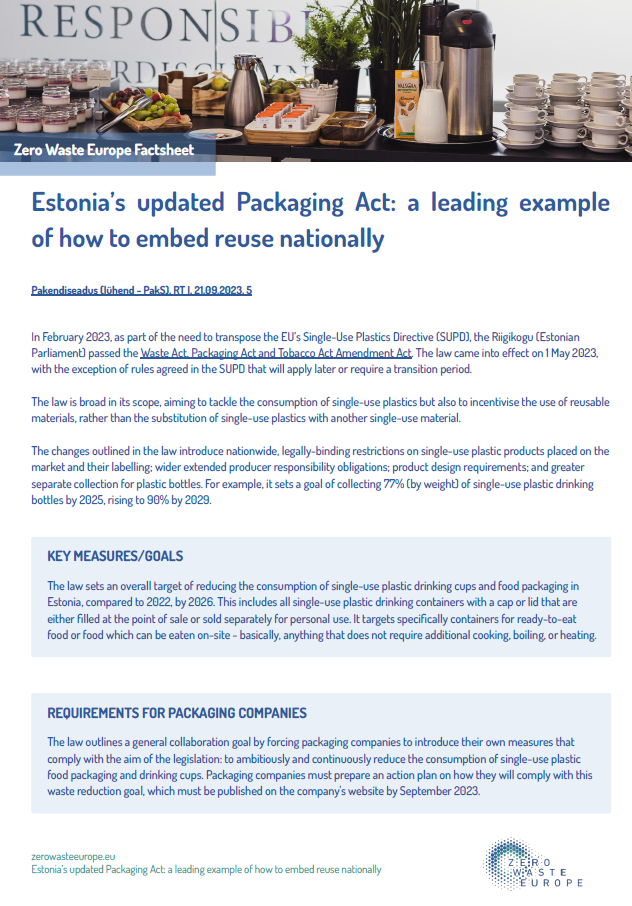
In February 2023, as part of the need to transpose the EU’s Single-Use Plastics Directive (SUPD), the Riigikogu (Estonian Parliament) passed the Waste Act, Packaging Act and Tobacco Act Amendment Act. The law came into effect on 1 May 2023, with the exception of rules agreed in the SUPD that will apply later or require a transition period.
As part of our activities for the 2023 European Week of Waste Reduction, this factsheet lays out Estonia’s measures to implement the SUPD nationally – from binding actions for packaging companies to mandatory reuse items in public events.
Available in English.
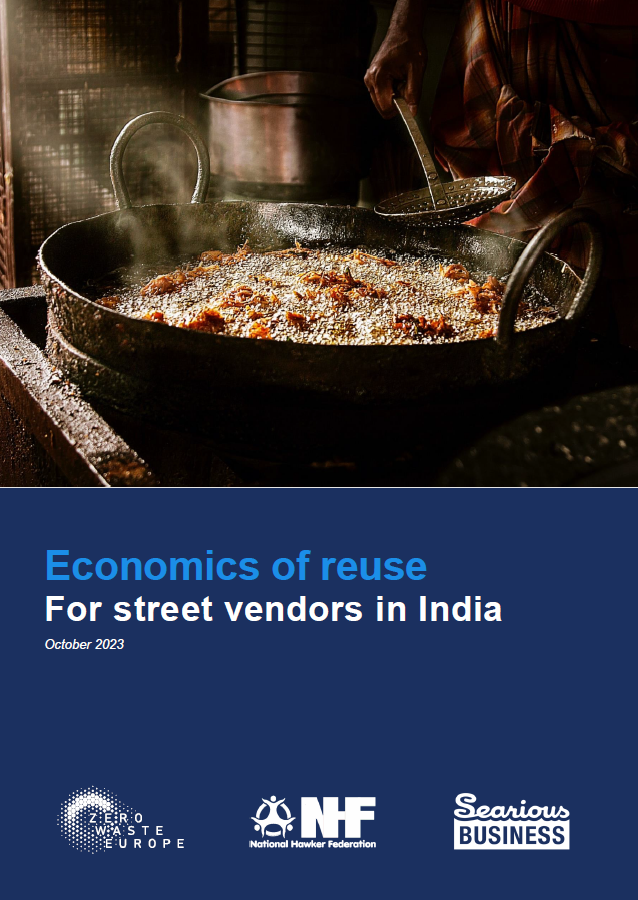
India’s thriving street food sector, currently reliant on single-use plastics (SUP) for packaging, faces a pressing need for sustainable alternatives.
This report by Searious Business, the National Hawker Federation (NHF), and Zero Waste Europe delves into the economic feasibility of a novel reuse system tailored to Indian street food vendors.
While SUP has long been affordable and accessible, it poses substantial environmental challenges, particularly concerning petrochemical production and post-use disposal. The report conducts a robust cost-benefit analysis to address these concerns, comparing the current SUP system with the proposed reuse system. The study’s key objectives encompass an extensive evaluation of the financial implications, costs structures, and potential benefits associated with both systems, emphasising a focus on commonly used street food packaging items – including plates, bowls, cups, and takeaway containers.
Available in English
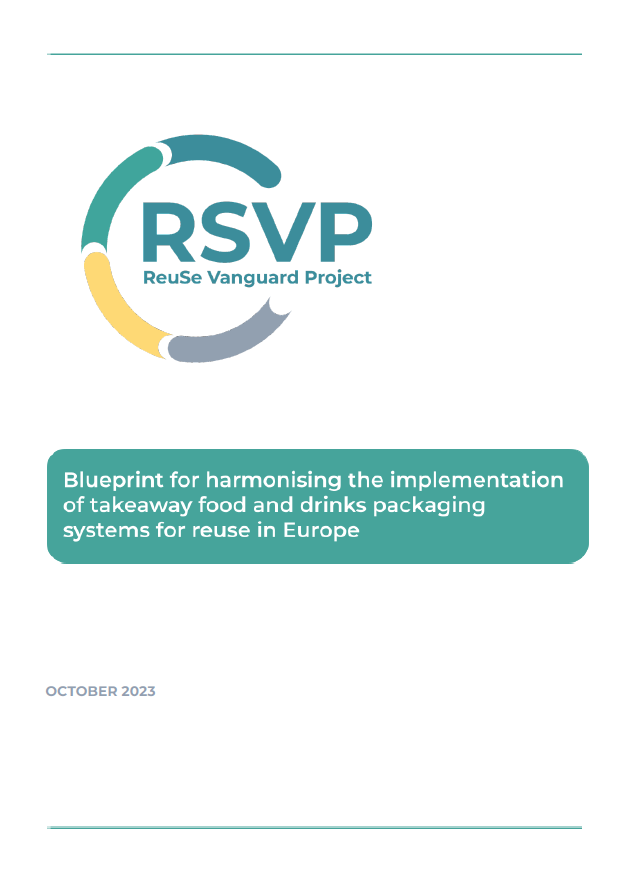
This draft blueprint results from the enhanced collaborative work that has taken place under the umbrella of the pan-European ReuSe Vanguard Project (RSVP), which includes the main learnings from the co-designing phase of city scale-up projects with local reuse ecosystems in five countries. This is, thus, a work in progress.
This blueprint aims to support and harmonise the creation of a well-performing and resilient reuse infrastructure development model in urban areas across Europe; and its scaling up in the next few years, starting with the key sector of reusable take-away food and drinks packaging. This sector has experienced an unprecedented rate of dynamism and innovation over the last few years and can be instrumental in setting up urban infrastructure which could later be used by other product and packaging categories.
Available in English.
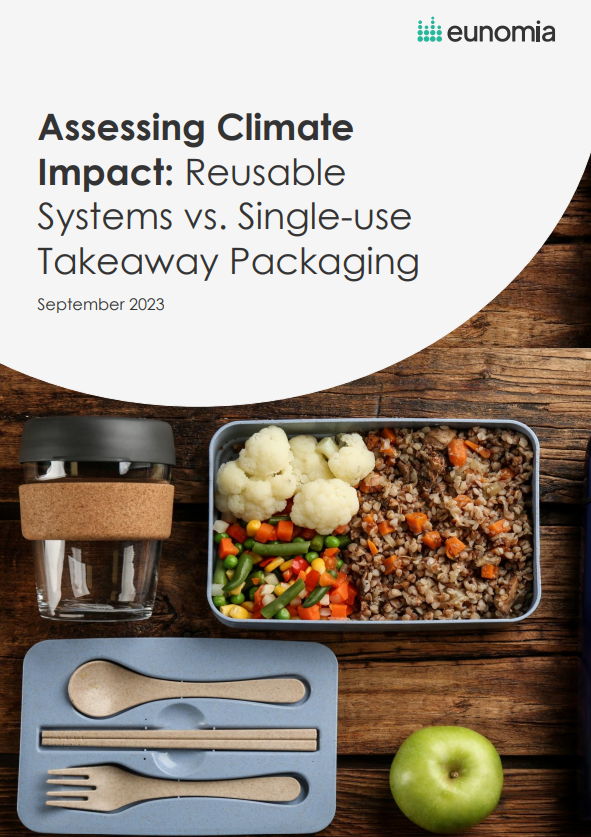
In this study authored by Zero Waste Europe, Reloop, and TOMRA, and produced by Eunomia Research & Consulting Eunomia, reusable take-away packaging demonstrates its potential for significant greenhouse gas emission reductions compared to single-use alternatives. The study examines various packaging types, including cups, burger boxes, bowls, pizza boxes, and sushi containers, highlighting emissions reduction potential with efficient return and washing systems.
The study identifies breakeven points, such as return rates for bowls and coffee cups to match single-use carbon footprints. Envisioned in 2030, the study foresees efficient collection, washing, and redistribution of reusable packaging, emphasising its role in a cleaner and sustainable future. These findings guide effective reusable system implementation, stressing emissions reduction and design importance, encouraging large-scale trials for validation and refinement.
Executive summary available in English, French, Italian, Croatian, and Ukrainian.
Full report available in English.
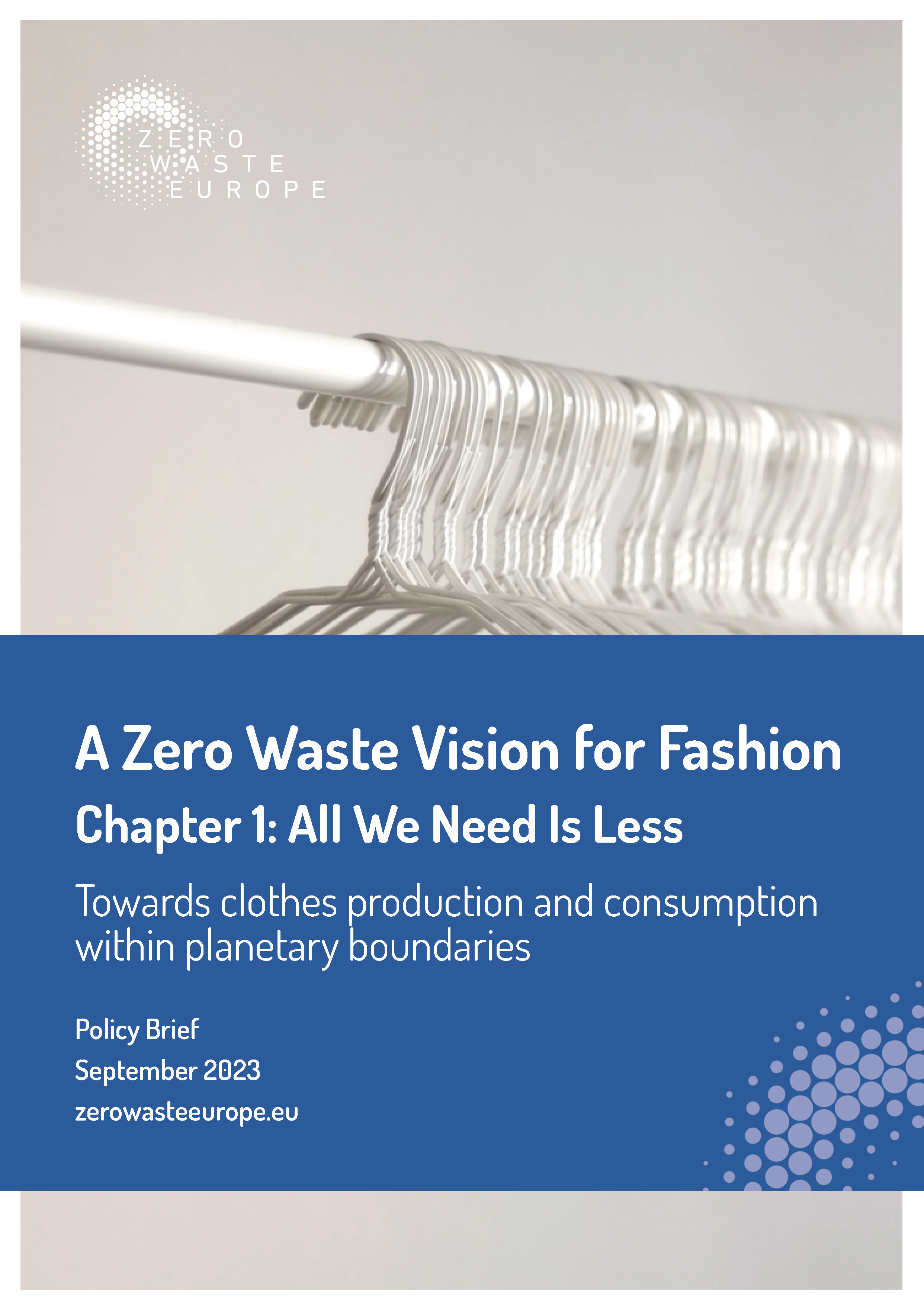
Without a shift to sufficiency in the fashion sector, the industry is on track to exceed planetary boundaries.
In this paper, ZWE outlines a list of entry points for the transition towards sufficiency and urges governments to take proactive steps to adopt best practices. More precisely, the paper suggests a legal framework banning the destruction of unsold goods, setting a target for textile waste reduction and resource use and transforming EU waste legislation into a ‘Resource Framework Directive’ in line with a 1.5-degree target.
The paper underlines that governments should not rely on so-called consumer behaviour ‘nudges’ to cut down on fashion consumption and must address the cause of the current waste crisis: the fast fashion business model that relies on selling large volumes of trendy items. The textile sector’s transformation is a critical milestone, yet it’s only part of a broader economic shift toward sufficiency, well-being, and resilience within planetary boundaries.
This paper serves as the inaugural chapter in a two-part series exploring fashion and textiles along the entire value chain. The subsequent chapter will delve into circularity, covering optimal design, use, reuse, recycling, and end-of-life treatment of garments.
Executive Summary available in English, Italian, and Croatian.
Full paper available in English.
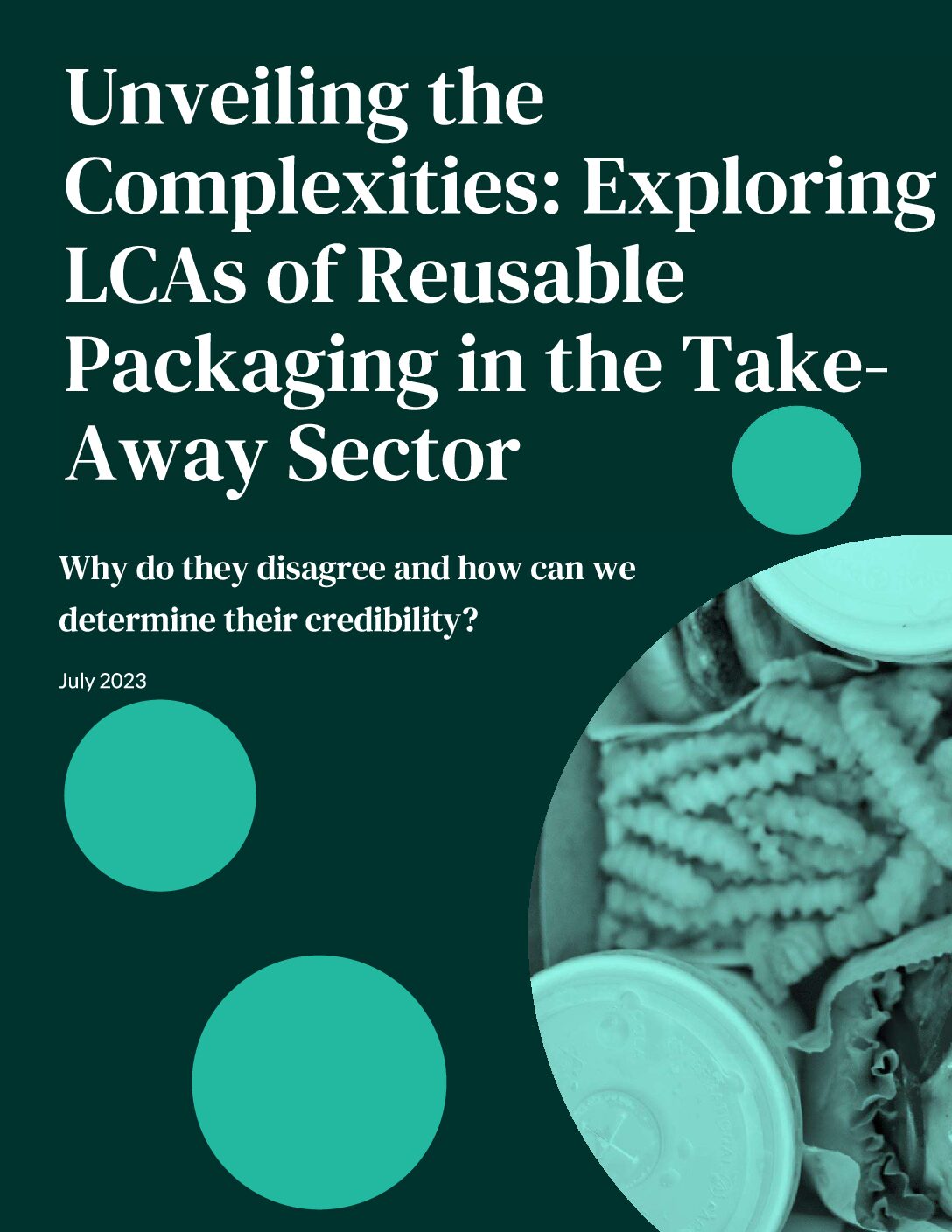
As the EU considers reuse targets in the Packaging and Packaging Waste Regulations (PPWR), this Eunomia Research & Consulting report highlights the lack of transparency from industry leaders in shaping the discussion around reusable packaging. In many cases, influential studies promoting single-use packaging have been found to exhibit biases against reuse due to funding interests and cherry-picked scenarios. The report evaluates three Life Cycle Assessments, highlighting the importance of transparent methodology and accurate assumptions in understanding the true potential of reusable take-away packaging.
Download the full joint report by Reloop and Zero Waste Europe below.
Full report available in English.
Executive Summary available in English and Croatian.
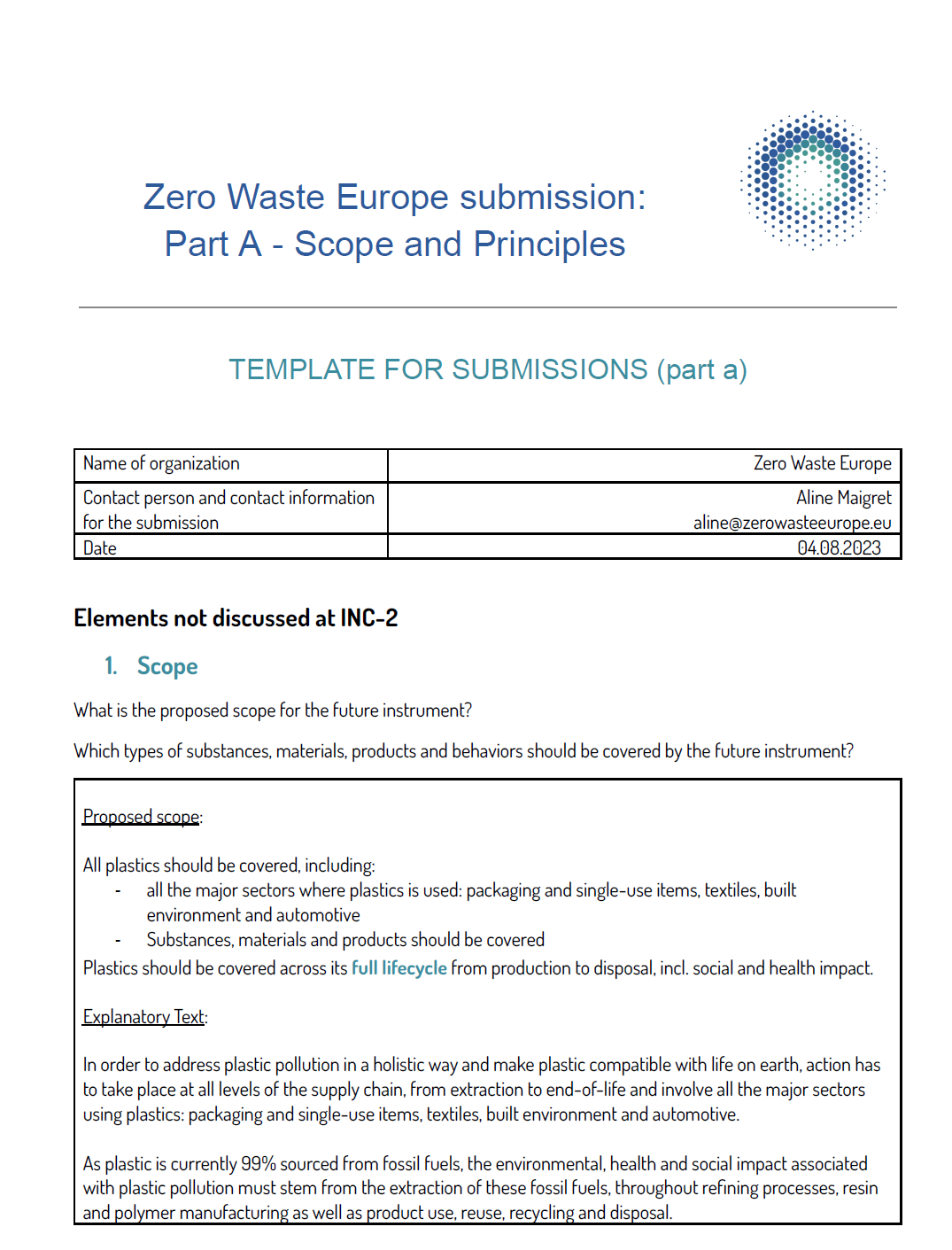
Zero Waste Europe has been working on policies and measures targeting plastic pollution since the early 2000s, has done extensive research, movement building, and policy advocacy, and has implemented zero waste solutions since then.
This document contains our submission to the third Intergovernmental Negotiating Committee (INC-3) to develop an international legally binding instrument on plastic pollution.
Available in English.
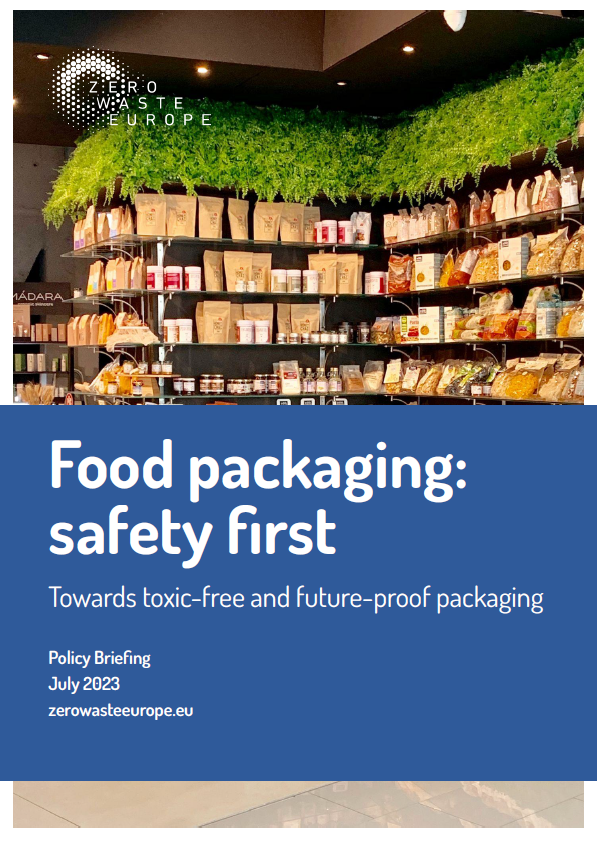
Despite increased attention being paid to the sustainability and principles of circular economy in the European Union, there is a general lack of holistic and harmonised legislative approaches towards materials’ circularity and the critical aspects of their chemical safety. A more coherent EU policy on consumer safety issues is not only highly desirable, but human biomonitoring data on harmful chemicals detected in the entire EU population show that it is urgently needed.
This ZWE policy briefing lays out proof and tried-and-test arguments towards toxic-free and future-proof packaging.
Executive Summary available in English and French.
Full briefing available in English.
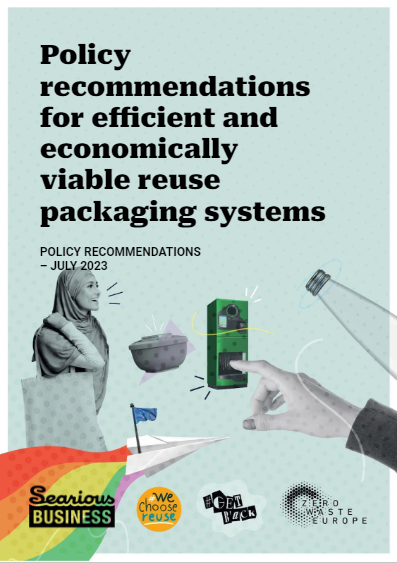
Based on the findings of the ZWE-Searious Business study ‘The economics of reuse systems‘, ZWE has formulated policy recommendations for the Packaging and Packaging Waste Regulation (PPWR), highlighting how to ensure the regulation delivers an optimal reuse system performance for packaging, including the economic viability critical for success. Those are explored within 3 key measures: minimum performance requirements, economic incentives, and legal certainty that allows for economies at scale.
By incorporating these recommendations into the PPWR, policymakers can ensure that reuse delivers on its promises.
Available in English, Estonian, French, Latvian, Croatian, Polish, and Hungarian.
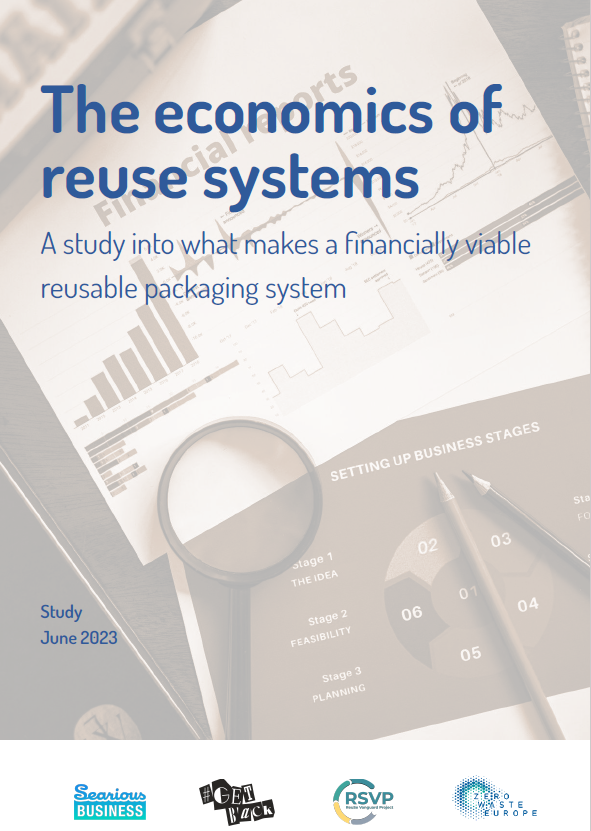
After elimination, the widespread uptake of reusable packaging has the highest potential to reduce plastic production. This view is sustained by a recent shift in legislative focus in the European Union’s Packaging and Packaging Waste Regulation (PPWR) and the United Nation’s Global Plastic Treaty to end plastic pollution. However, several brands and industry associations have been hesitant to wholeheartedly embrace reusable packaging.
The study by Searious Business and Zero Waste Europe examines 3 packaging categories in an open loop system (so not within one location), in Spain as an archetype country: 1) food containers for takeaway food, 2) secondary transport packaging and 3) beverage bottles. The results show that reuse packaging will only become even more economically viable in the next few years and providing faster return on investments.
Executive summary available in English, Estonian, Montenegrin, Ukrainian, and Polish.
Full report available in English, German, French, Spanish, Dutch, and Italian.
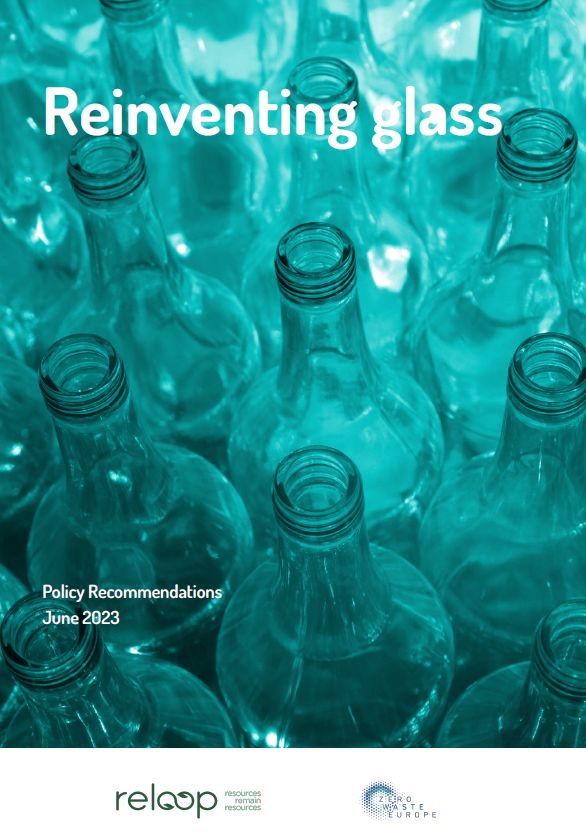
Single-use glass is proven to have the highest overall environmental footprint compared to other single-use materials. On the other hand, reusable glass offers the greatest potential to reduce environmental impacts: reusable glass bottles produce 85% fewer carbon emissions than their single-use counterparts, 75% fewer carbon emissions than plastic (PET), and 57% fewer carbon emissions than aluminium cans.
Taking into account the findings of the ZWE-Eunomia ‘Decarbonisation of single-use beverage packaging’ study, ZWE and Reloop urge the EU Packaging & Packaging Waste Regulation to set the path for single-use glass to be replaced with reusable glass in the coming years.
Available in English, Polish, and Croatian.
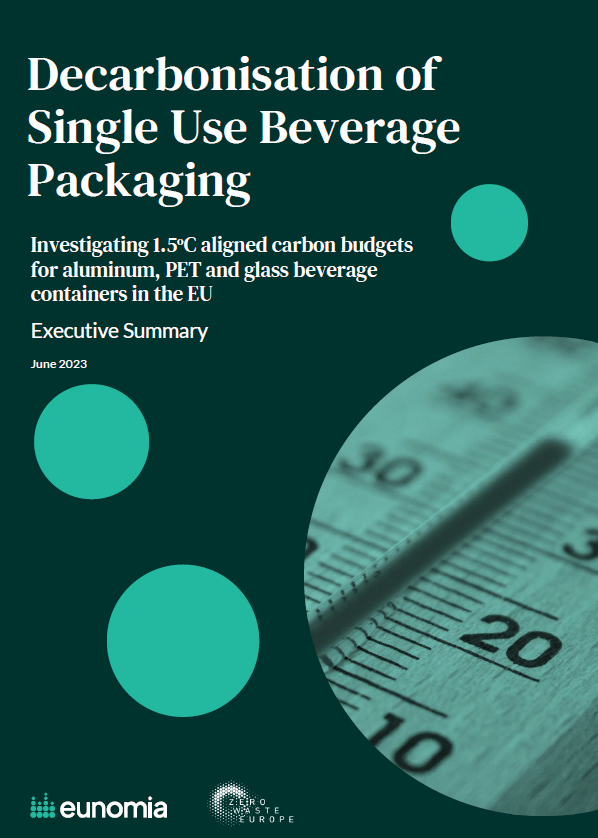
Commissioned to Eunomia Research & Consulting by Zero Waste Europe, this study builds upon Eunomia’s previous investigation into materials decarbonisation pathways in the report “Is Net Zero Enough for the Material Production Sector?”.
Focussing on the four materials with the greatest emissions globally, the study found that each will have great difficulty in reducing GHG emissions in line with a 1.5°C future by 2050, particularly if mass consumption continues and increases. Whilst studying the global material picture provides valuable insights; policymakers may find it more useful to have the same approach applied at the product level. Therefore, this study delves into the Net Zero pathways of aluminium, PET, and glass when utilised in beverage packaging within the EU, evaluating their potential performance within a cumulative GHG emissions budget that aligns with the goal of limiting global warming to 1.5°C.
Full report available in English. Executive summary available in English, French, and Latvian.
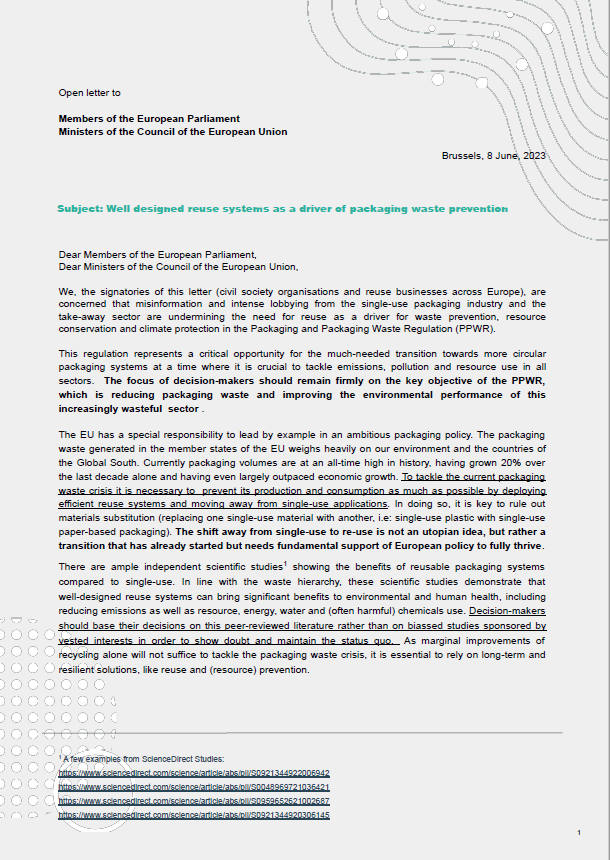
In an open letter, the Rethink Plastic alliance and a coalition of 79 organisations (including Zero Waste Europe) consisting of civil society organisations and businesses advocate for the integration of well-designed reuse systems as a catalyst for preventing packaging waste in the revision of the EU Packaging & Packaging Waste Regulation (PPWR).
Available in English.
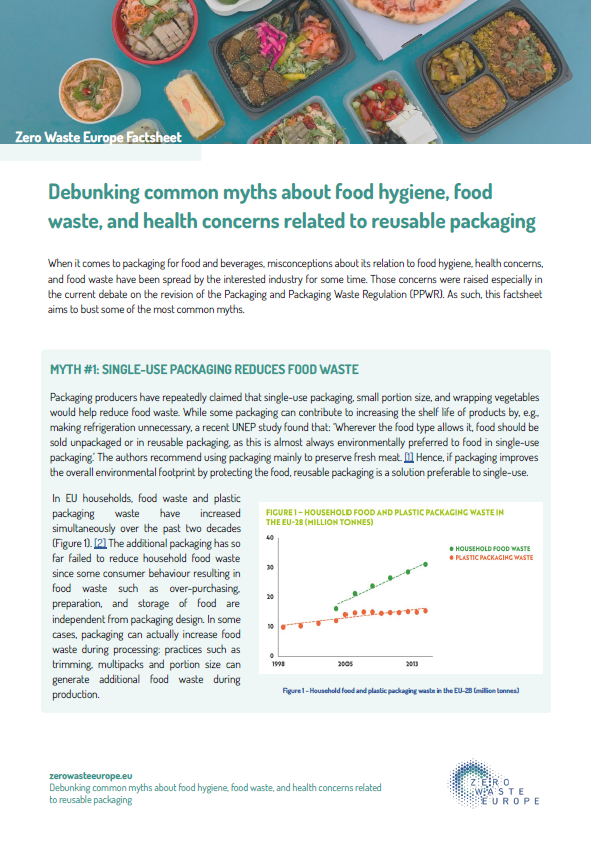
When it comes to packaging for food and beverages, misconceptions about its relation to food hygiene, health concerns, and food waste have been spread by the interested industry for some time. Those concerns were raised especially in the current debate on the revision of the Packaging and Packaging Waste Regulation (PPWR). As such, this factsheet aims to bust some of the most common myths.
Available in English, Estonian, French, Hungarian, Montenegrin, Latvian, and Slovenian.




